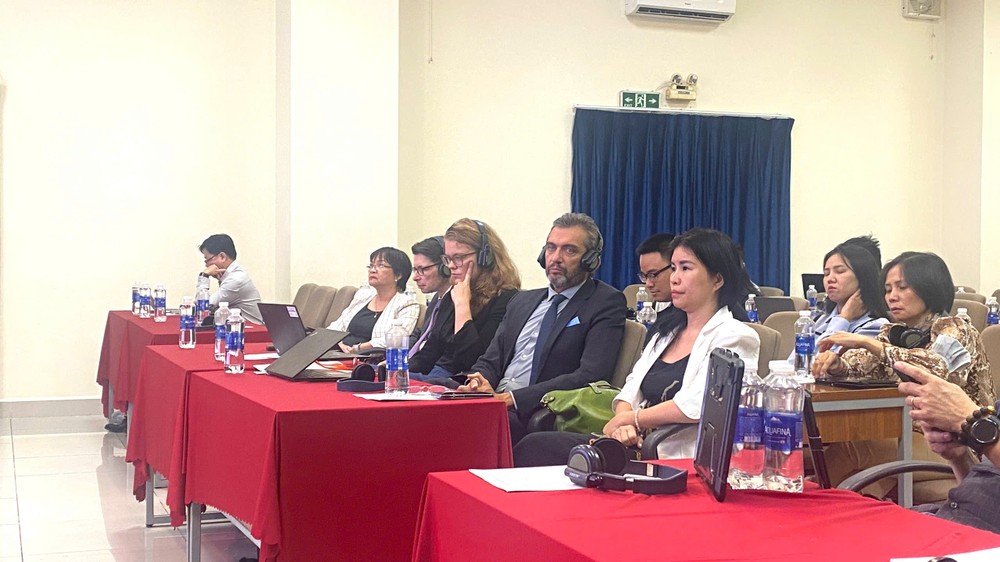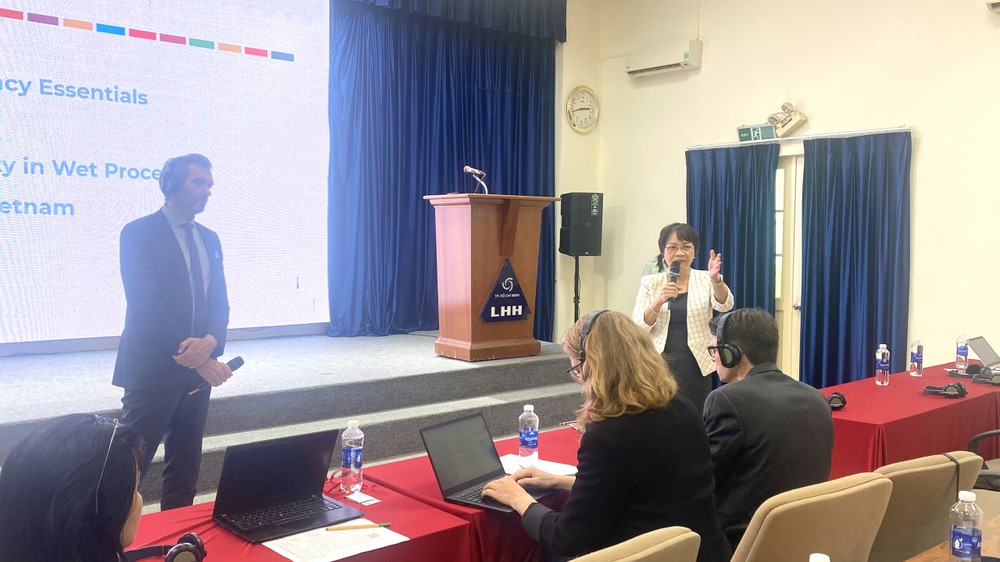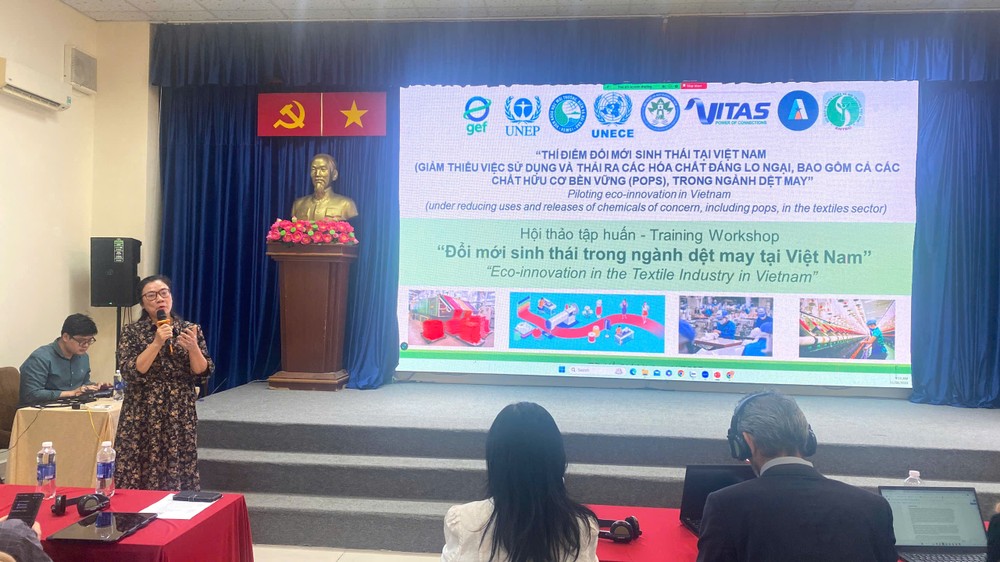The event was organized by the Environmental Technology Center (ENTEC) in collaboration with the UN Environment Program (UNEP), the UN Economic Commission for Europe (UNECE), the HCMC Water and Environment Association, and the Vietnam Textile and Apparel Association (VITAS).

The workshop is part of UNEP’s pilot project on eco-innovation in Vietnam, aimed at reducing the use and release of hazardous chemicals, including persistent organic pollutants (POPs). Ms. Nguyen Thi Tuyet Mai, VITAS Deputy Secretary General, emphasized that global initiatives, such as the EU Green Deal, REACH, and CSDDD, now make chemical data transparency and environmental impact reduction mandatory standards. In a sector with extensive supply chains and heavy chemical use, transparency is not just a regulatory requirement but a “passport” for Vietnamese businesses to participate in global supply chains.

Despite progress in national environmental and chemical policies, many Vietnamese firms still face challenges: chemical data remain insufficiently digitized, supply chains lack connectivity, and small- to medium-sized enterprises often have limited technological resources. Transparency is frequently fragmented across fiber, dyeing, and garment production stages.
The pilot project led by UNEP, UNECE, and ENTEC seeks to support businesses in meeting new chemical safety standards while optimizing processes, reducing water, energy, and chemical use, and enhancing compliance through digital tools, including blockchain. Ms. Nguyen Thi Phuong Mai, Deputy Project Manager, highlighted that the initiative will guide enterprises in identifying bottlenecks, transitioning to sustainable business models, and accessing green financing.

International experts at the workshop also shared insights on policy trends and blockchain applications to improve traceability and chemical management, underscoring the growing importance of eco-innovation for the competitiveness of Vietnam’s textile sector in the global market.
























